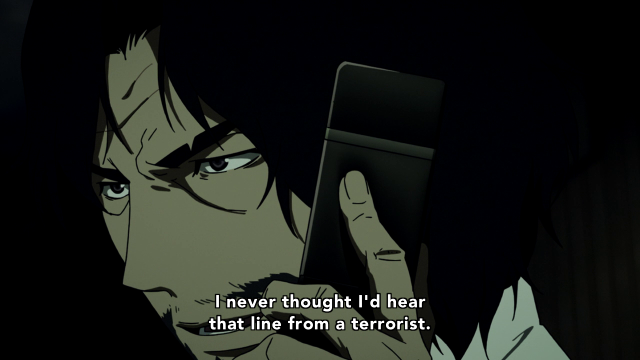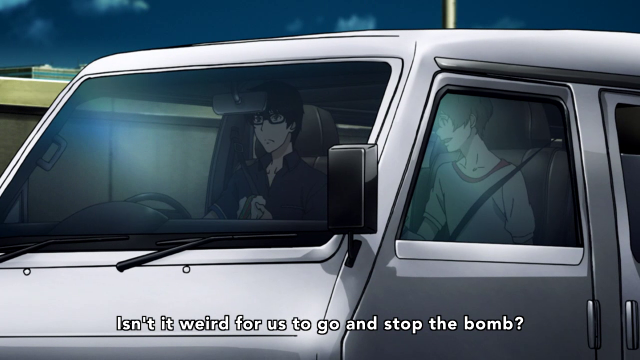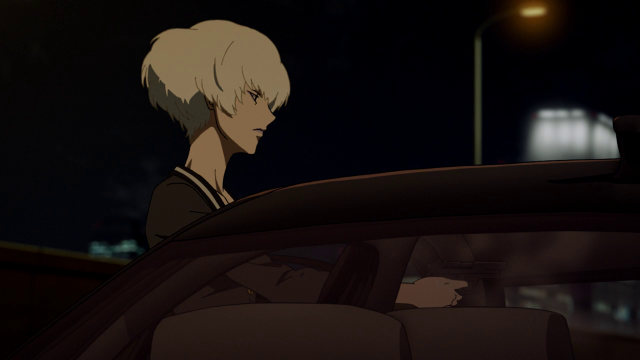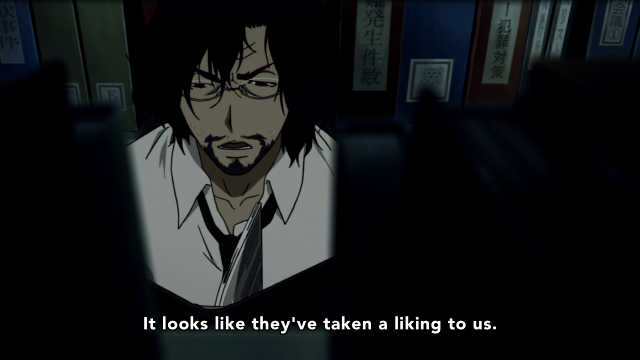Zankyou no Terror stood as the best thriller this summer. (I suppose Aldnoah.Zero could be considered its only competitor. Perhaps, Tokyo Ghoul as well?) I very much enjoyed watching it, and rated it three and a half stars. This might seem low to some, and it took a while to place my finger on why a higher rating did not square with my impression of the show. At last, I hit upon the reason: Zankyou no Terror rates three and a half stars or 7/10 because it was perfect and no more than that.
You see, my dear readers, the modern world has reduced story writing to a science with much more precision than Aristotle accomplished in his Poetics. Visit your local Barnes & Noble, and you can discover manifold handbooks on how to write a good story lining the shelves. Follow their instructions, and, with a little practice, you too can create a polished story like Zankyou no Terror! No exaggeration! Of course, if you refrain from placing your own uniqueness into the work, the story will in nowise rate 7/10. Placing his own unique vision and artistry into Zankyou no Terror is precisely how Shinichiro Watanabe guaranteed a story at least that good.
Not to say that following the handbook is a bad thing: the reason handbooks give the advice they do is because successful stories exhibit common features. Yet, the knowledge that one is following a universally accepted framework forces one to add much more originality into a work in order to immerse people like me into the story. For example, the first three novels of Jim Butcher’s The Dresden Files exhibit such a framework. Yet, Jim Butcher adds loads of originality to his work by creating an inimitable mixture of thriller, horror, hard-boiled, and fantasy which hold the reader spellbound. Zankyou no Terror restricted itself solely to the material modern world; yet, it did add a nice dose of originality with its inclusion of the Oedipus legend, 70’s vibe (70’s movies often featured the villains being the good guys or the villain winning in the end), chess metaphors, and terrorist teenagers trying to expose government corruption. But, this was not enough for me to rate it higher.
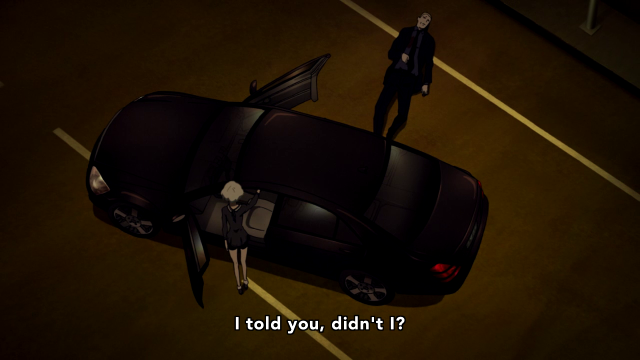
Clarence obviously never studied famous gun fighters. Wild Bill Hickok was killed in about the same way: someone shot him from under the card table.
Once again, I liked Zankyou no Terror. All the same, I wish it exhibited more originality–even originality which was patently flawed. (After all, originality derives from our individuality, which itself is flawed.) For example, Cowboy Bebop has many flaws, and the story-telling is no where near as tight; but it’s a classic. People will remember and want to watch Cowboy Bebop again decades from now, but one cannot say the same about Zankyou no Terror. But, Zankyou no Terror really does nothing wrong, which is an odd critique to make against it. And, in its defense, thrillers are particularly beholden to the recipes in the handbook in order to ensure that tension does not drop. And so, the show is very good but not great.
Well, I wrote an opinion that probably only a fellow fiction writer would agree with; but, do any of my dear readers think the same way I do about Zankyou no Terror?
